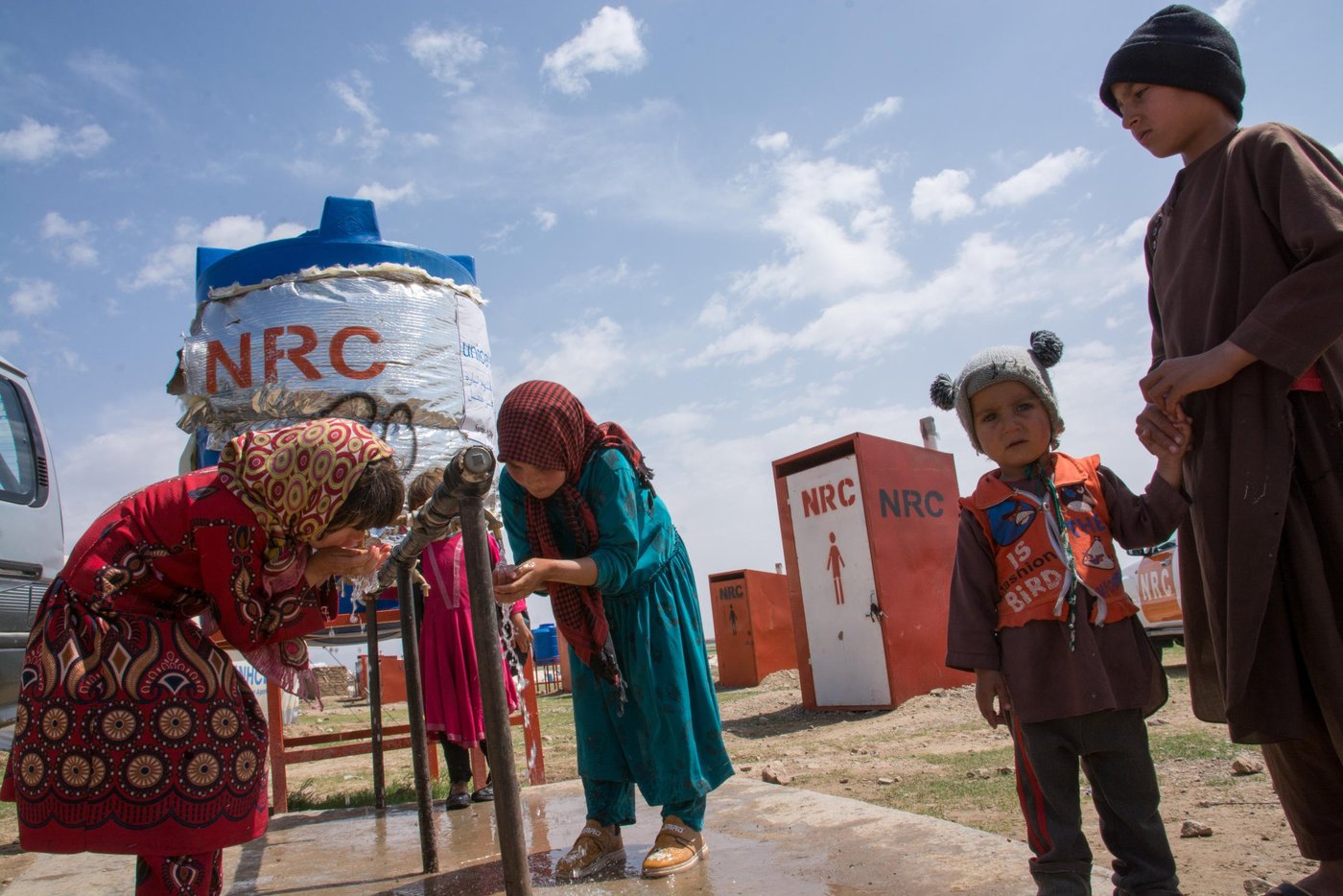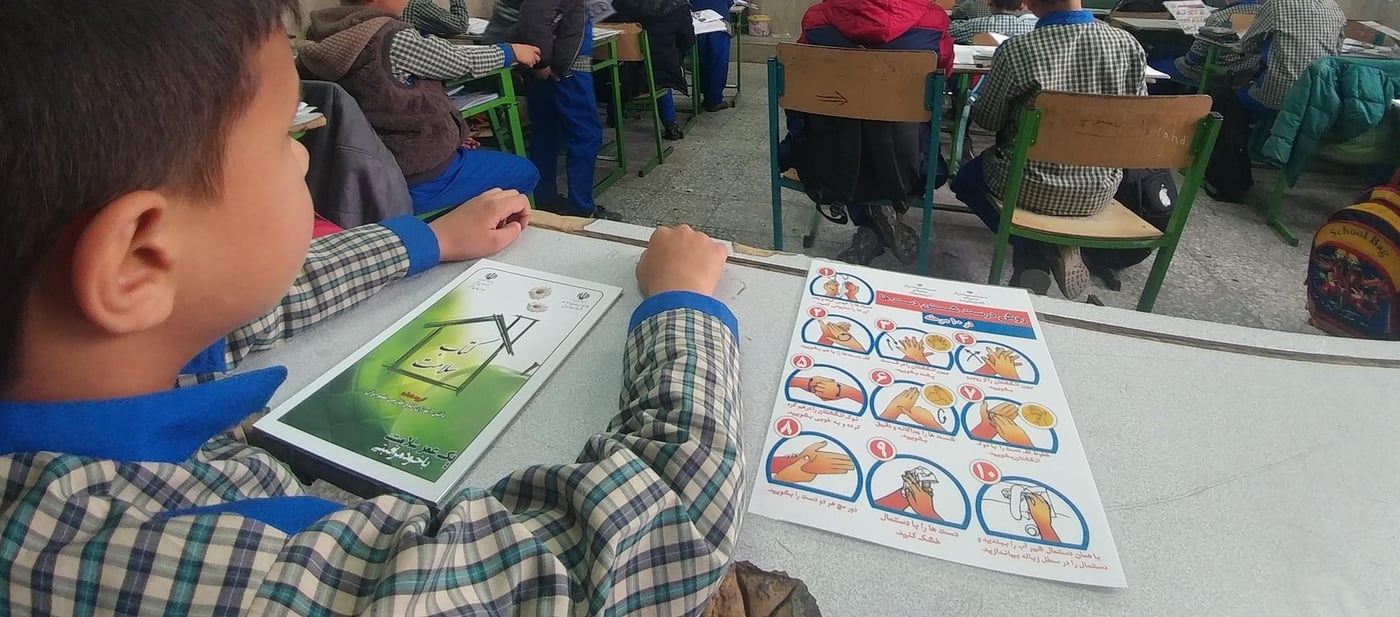But for millions of vulnerable people who have been forced to flee their homes due to violence and persecution, this message is empty. According to WHO and UNICEF, 40 per cent of the global population live without basic handwashing facilities. Some of these people live in overcrowded camps, or in areas where hospitals have been bombed and healthcare systems have collapsed.
Here at the Norwegian Refugee Council (NRC), we are scaling up our global water, sanitation and hygiene promotion (WASH) programmes to respond to the coronavirus crisis. Here are three ways we’re fighting the spread of the virus among the world’s most vulnerable communities.
#1 Handwashing saves lives
Good hygiene practices such as handwashing are among the most effective ways to preventing viruses from spreading.
NRC is working to equip schools, community centres and aid distribution sites in several countries with handwashing facilities and soap. The provision of safe water, sanitation and hygienic conditions plays an essential role in protecting human health during infectious disease outbreaks – including Covid-19.

#2 Awareness is key
Promoting safe hygiene behaviour is even more important at a time like this. NRC is partnering with national health authorities to distribute information about preventing the spread of the virus.
Handwashing promotion can only work if communities are fully engaged and informed. This involves building trust and mutual understanding by engaging local people in communications and decision making.

#3 Rumours and misinformation cause fear
It’s not just important to give correct information during a crisis, but also to dispel false information. Misinformation can spread like wildfire and cause significant damage to public health. We are working around the clock to monitor and respond to this.
Our Global WASH Manager, Ammar Fawzi, has drawn parallels with the Ebola response to emphasise the importance of tackling misinformation:
"We saw with the Ebola response that there was a lot of fear. Fear leads to misinformation and rumours, which leads to stigmatisation and people being discriminated against and denied other services. We are trying our best to stop that with the coronavirus response through a lot of community engagement."
Community engagement includes identifying the right people to engage with, whether these be community leaders, taxi drivers, schoolteachers or shop owners, to understand the situation. This is important not just in face-to-face situations, but on social media too.

NRC has extensive experience in dealing with epidemics and crises in the world’s most vulnerable areas, and we are now rapidly adapting our work to respond to the coronavirus. We need a global push to limit the spread of the virus.
You are already playing an important role in preventing the spread of the virus by washing your hands and limiting contact with others. But the only way to truly #FlattenTheCurve is by making sure that those living in the world’s most vulnerable areas can do this too.


